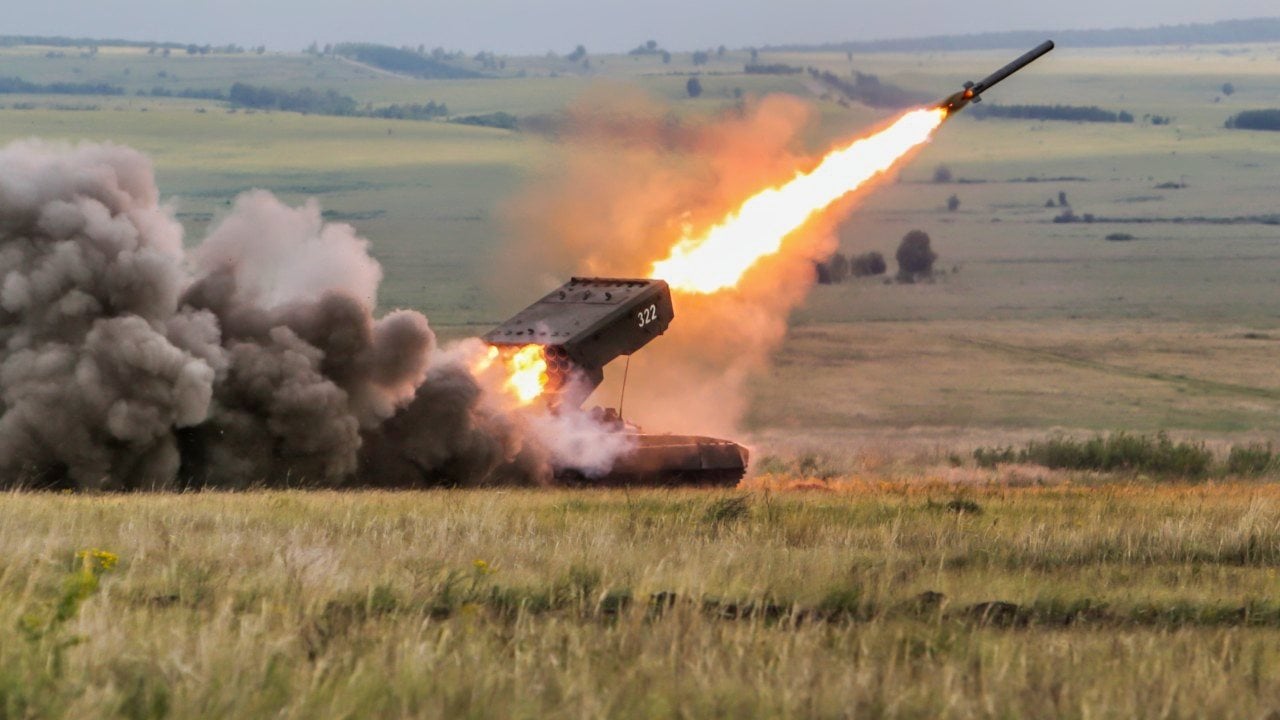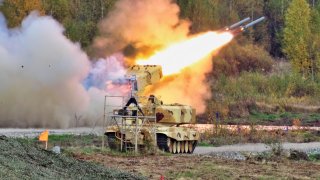Russia's Military After the Ukraine War: Enter the Gray Zone?
Despite setbacks in Ukraine, Russia is poised to refine its military strategy by leveraging lessons learned about nuclear deterrence and Western caution. The Kremlin is likely to employ gradual escalation and "grey zone" tactics in future operations, challenging international norms and testing the limits of Western responses.
Note: This op-ed was written to contribute to a National Interest symposium on the challenges Russia's military will face after the Ukraine war ends.
Russia’s war against Ukraine has exposed significant flaws in the design and execution of its military operations. Some analysts argue that the Russian military will emerge from the war seriously weakened, unable to afford another campaign against its neighbors or other countries. However, other observers characterize the Russian military as adaptable and capable of not only altering operational tactics during the war but also identifying strategic opportunities for future operations based on observations of adversary behavior.
While Russia’s operational capabilities after the war will largely depend on the condition of its army, navy, and air force, its capacity to carry out new operations is likely to be significantly enhanced thanks to the extensive experience gained during the conflict in Ukraine.
One of the strategic insights Russia, and possibly China, India, and others, may have gleaned is the cautious response by major Western powers to Russia’s aggressive territorial expansion under the umbrella of nuclear deterrence. Although various effective tactics may offset the conventional advantages of large military fighting near its borders, like Russia in Ukraine or potentially China in Taiwan, the role of nuclear weapons in shielding expansionist actions has proven more significant than previously believed.
Consistent with recent research on the psychology of nuclear brinkmanship, risk aversion among leaders of stakeholder countries has played a key role in shaping responses to nuclear blackmail. Additionally, the changing demographics of Western societies may contribute to risk aversion among Western leaders, who can nevertheless rely on supportive political elites to promote policies that the general public may not fully understand or may even oppose. Russian attempts to influence public opinion in the West through online media interference have had limited effect on Western support for Ukraine, largely due to a strong conviction among top Western bureaucracies about the necessity of aiding Ukraine.
Russia’s political leadership and military top brass have been closely observing NATO’s alliance politics and the interactions between NATO members and Ukraine. NATO membership and cohesion have increased since the war began. At the same time, the alliance has chosen to restrain its smaller members, discouraging them from unilateral escalation with Russia out of fear that NATO as a whole might be drawn into the conflict.
Both Russia and NATO have avoided declarations that could imply they consider themselves at war with each other. NATO has been reluctant to even test Russia’s reaction by discussing whether Moscow’s hostile actions warrant the activation of Article 5. For Moscow, this suggests that a high threshold of hostilities is required to trigger NATO mobilization for war.
Another lesson suggests that many red lines can be overcome through the gradual escalation of hostilities or operations in the grey zone surrounding those lines. This approach has worked for the West, which has gradually expanded support for Ukraine. It also worked for Ukraine during the Kharkiv and Kherson counteroffensive in the fall of 2022 and the Kursk incursion since August 2024.
Similarly, the Kremlin successfully pushed the limits of escalation, including nuclear threats, that the Russian public and ruling elites were willing to accept, ultimately dragging an initially reluctant China into full-scale support of Russia’s military effort.
The Kremlin has also tested Western sanctions policy, gauging its limits at various stages of escalation in Ukraine. It has likely concluded that the reach and intensity of sanctions will plateau at a certain point in the conflict, without further attempts to “punish" Moscow for repeating actions that initially caused outrage.
It is unclear how quickly Russia, with its economy and large segments of society mobilized for war, can change the rationale underlying its foreign behavior. Bracing for long-term confrontation even after the war with Ukraine ends, the Kremlin will expect to leverage the rules of the game established during the conflict.

Moscow will seek opportunities to conduct operations, potentially involving military action, that combine gradual escalation with creating facts on the ground. Russia will not shy away from negotiations that do not preclude maneuvers capable of taking both its adversaries and allies by surprise.
About the Author
Mikhail Troitskiy is a visiting scholar at the Davis Center for Russian and Eurasian Studies, Harvard University, and a visiting professor at the Fletcher School of Law and Diplomacy, Tufts University.
Image Credit: Creative Commons and/or Shutterstock.


